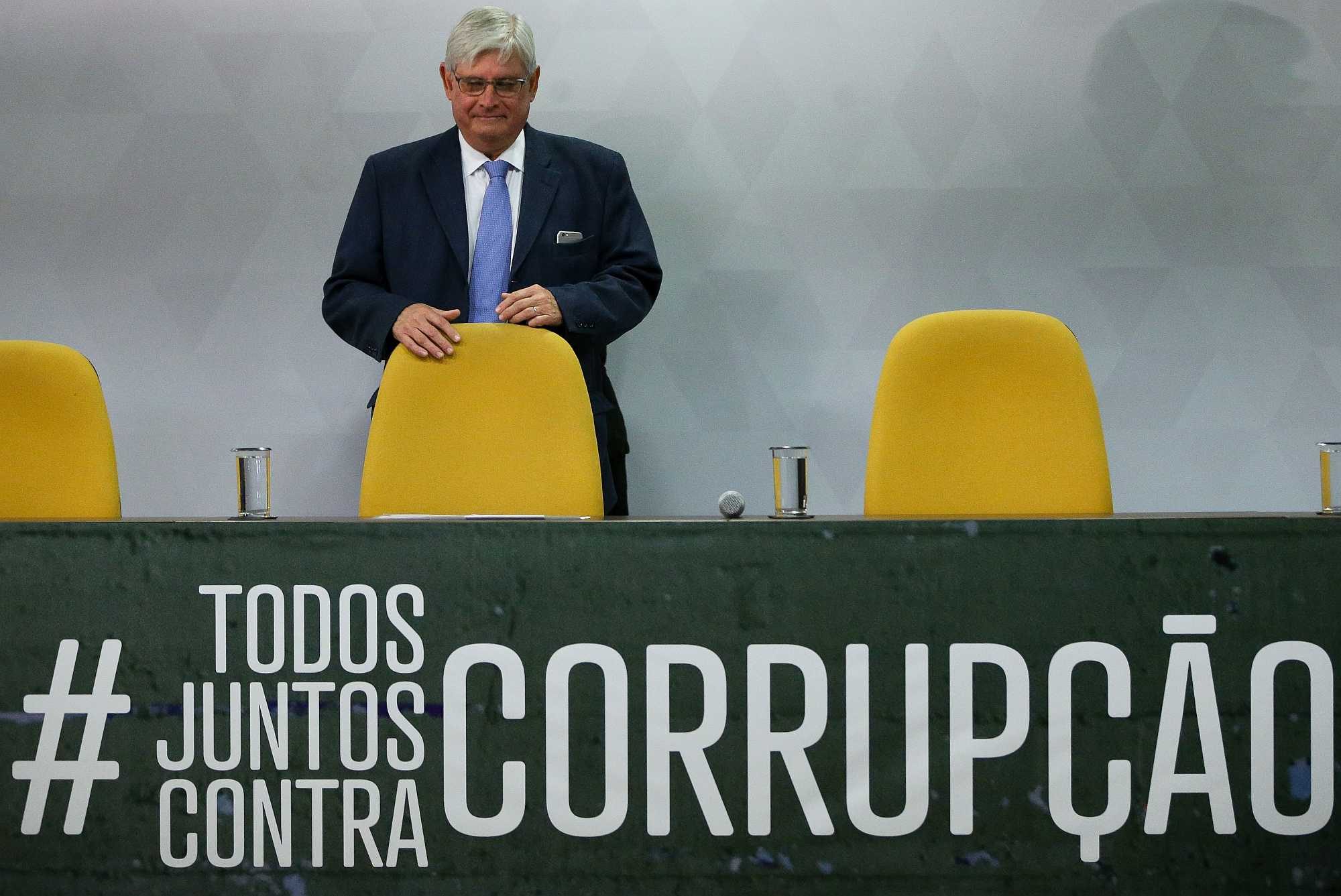Brazil’s Prosecutor-General Rodrigo Janot released a statement saying that the unprecedented quality and quantity of the investigations conducted over the last few years have left the investigated with no other choice but to attempt to “undermine and discredit” those whose job is to fight corruption.
“One cannot fail to acknowledge the significant steps taken in Brazil over the last years in the fight against corruption. There is no going back now, even though there is still a lot to be done,” he added.
The statement was made during the launch ceremony of an initiative dubbed All Together Against Corruption, one day after the Federal Police finished its probe in which signs were gathered of crimes believed to be committed by President Michel Temer and aides in the so-called “PMDB lower house gang.”
“Since there are no excuses for the huge amount of facts brought to light, the strategy of the defense couldn’t be any other than attempting to undermine and discredit those charged with the fight against corruption,” Janot pointed out.
As for the campaign, Janot said its purpose is to develop a set of preventive strategies.
“A culture completely averse to corruption must be created, raising awareness and engaging the population in the key role of organization and mobilization against this scene of patrimonialism, underhandedness, and clientelism, which sadly marks the course of our history,” he said.
Temer and PMDB
An investigation initiated by the Federal Police has brought to light signs of crimes allegedly committed by President Michel Temer and other representatives of the Brazilian Democratic Movement Party (PMDB) in the lower house. A note was released Monday (September 11) by the police.
The group of criminals is believed to be made up of Chief of Staff Eliseu Padilha and Moreira Franco, head of the government’s secretariat, in addition to former Ministers Geddel Vieira Lima and Henrique Eduardo Alves, and former lower house speaker Eduardo Cunha.
PMDB leaders, the police argue, relied on “an organizational structure aimed at directly and indirectly obtaining illicit advantages at public agencies.”
Crimes include the taking and paying of bribes, money laundering, bid rigging, and illicit transfer of funds abroad. A report is to be sent to the Supreme Court.
In a note, the presidency declared that Temer “does not participate and has not participated in any criminal organization.” “Nor has the president taken part in any ring aimed at obtaining illicit advantages, either directly or indirectly, at public agencies.
“President Temer deplores that unfounded allegations made in an attempt to denigrate his honor and public image are leaked to the press before due appreciation by the authorities,” the statement reads.
Padilha’s press office said he was only to make comments “after formal charges worthy of a response are filed.”
Minister Franco said he never joined a group to participate in any wrongdoing. “I despise such suspicions. I will answer conclusively as soon as I am given access to the report drawn up by the investigators. I am being forced to speak about something I am not familiar with as yet. This is not democratic.”
In a note, Henrique Eduardo Alves said that, for over 40 years, he has been a member of the PMDB—not a criminal organization. “The efforts to criminalize the political activity undermines democracy. The innocence of the PMDB will be proved over the course of the case.”
Geddel’s and Cunha’s defense lawyers were contacted and failed to answer as of the publication of this article.
Eduardo Cunha, Henrique Eduardo Alves, Geddel Vieira Lima were arrested as part of the probes under Operation Car Wash.
New Charges Against Lula
Federal prosecutors filed new corruption charges against former President Luiz Inácio Lula da Silva and his ex-minister Gilberto Carvalho. The allegations also target five other individuals for benefiting auto companies by enacting provisional decrees.
The auto companies are believed to have pledged to pay US$ 1.9 million to both Lula and Carvalho in exchange for advantages in the car industry.
Faced with this promise, prosecutors believe, “the public officials, in violation of their duties, benefited assembly plants MMC [Mitsubishi] and Caoa by promptly and atypically enacting Provisional Decree 471 on November 23, 2009, in strict accordance with prior arrangements, also granting the corruptors the knowledge of its draft before it was enacted and its sections numbered, after the adjustments were made as arranged.”
In a note to the press, the Lula Institute said the enactment of Provisional Decree 471/2009 fully complied with the law in its process of deliberation. The institute goes on to describe the charges as an act of persecution against the former president.
“The new charges concerning the enactment of Provisional Decree 471/2009 are not just unfounded, but also illegal and immoral. The prosecutors who penned it attempt once again to dwell upon a topic that has been the subject of criminal cases and has been brought before court for trial over a year ago,” the note reads.
ABr

